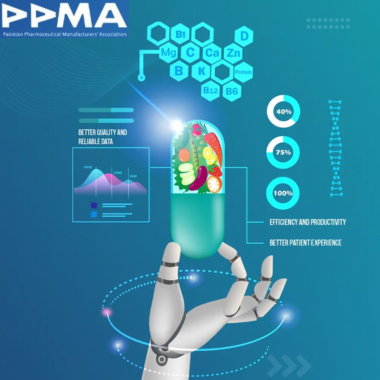The Pakistan Pharmaceutical Industry is rapidly transforming with innovation. This evolution is driven by local policies and global trends. From production to exports, every stage is witnessing change. The Pakistan Pharmaceutical Manufacturer Association (PPMA) plays a key role here. Its initiatives focus on regulation, quality, and trade expansion.
Understanding the Pakistan Pharma Industry
History and Background of the Pharmaceutical Sector
The Pakistan Pharma Industry began post-independence in the 1950s. Initially dependent on imports, local manufacturing slowly emerged. Over decades, self-sufficiency in essential drugs improved. Today, over 700 companies operate in the sector.
Major Milestones and Industry Growth
- Establishment of PPMA in 1994
- Introduction of Good Manufacturing Practices (GMP)
- Growth in pharmaceutical exports post-2010
Regulatory Framework Supporting the Industry
The Pakistan Pharmaceutical Industry operates under DRAP and PPMA oversight. Regulations ensure compliance with health and quality standards. Moreover, reforms in licensing and pricing continue to support industry growth.
Current Trends in the Pakistan Medicine Industry
Technological Advancements in Drug Manufacturing
Automation and digital tools are changing drug production processes. AI-driven R&D, precision medicine, and data analytics lead progress. This shift improves safety, speed, and scalability.
Examples of New Technologies
- Smart packaging for drug traceability
- Robotic dispensers in formulation labs
- Cloud-based systems for documentation
Rising Demand for Generics and Biosimilars
More people now seek affordable and effective alternatives. This demand pushes growth in generic and biosimilar markets. PPMA supports this through regulatory advocacy and awareness.

Globalization and the Industry’s Export Potential
How Pharma Exports Are Increasing
The Pharmaceutical Industry is expanding its export footprint. Key markets include Africa, Central Asia, and the Middle East. PPMA collaborates on trade missions to unlock global opportunities.
Strategic Export Drivers
- Improved quality compliance with WHO standards
- Bilateral trade agreements boosting access
- Focus on branded generics for competitive pricing
Role of Trade Bodies Like PPMA
PPMA drives pharma export policy dialogues with stakeholders. Their role ensures Pakistan’s pharmaceutical exports remain competitive. They also help reduce regulatory bottlenecks.
Government Support and Policies
Public Health and Industrial Policies
Policies like the Drug Pricing Policy of 2018 foster balance. This policy ensures availability without compromising profitability. National Health Vision also supports universal medicine access.
Role of PPMA in Policy Advocacy
Pakistan Pharmaceutical Manufacturer Associations works with DRAP, MOH, and trade ministries. Their involvement ensures industry voices shape relevant policy directions. Their contributions are vital in policy development and enforcement.

Pharmaceutical Education and Workforce Training
Addressing Talent Shortages Through Reform
The Pharmaceutical Industry faces a skills gap. Educational reforms now emphasize pharma-focused training. PPMA collaborates with universities to address this.
Notable Changes
- Increased pharma-specific programs in higher education
- Certification in regulatory affairs and drug safety
- Internships through PPMA and member firms
Building a Future-Ready Workforce
Equipped with modern skills, graduates improve production standards. They also help improve documentation, auditing, and R&D workflows.
Role of Digitalization and E-Pharmacy
Evolving Distribution Channels and E-Pharmacy Models
Digital pharmacies are reshaping how patients access medicines. This shift improves reach, compliance, and patient trust. Moreover, technology supports online consultations and safe deliveries.
Benefits of E-Pharmacy
- Better inventory management
- Access in rural and remote areas
- Real-time reporting to regulators
Integrating IT in Drug Safety Systems
Technology helps track drug authenticity and recalls. Barcode systems and databases boost safety. PPMA supports tech integration in small and mid-tier firms.
Sustainability and Green Pharma Initiatives
Industry’s Efforts Toward Environmental Responsibility
Green chemistry practices are gaining ground in Pakistan. Companies now reduce energy use and chemical waste. PPMA promotes eco-friendly policies across manufacturers.
Common Sustainable Practices
- Switching to renewable energy sources
- Using biodegradable packaging
- Water recycling in drug production
Regulatory Push for Eco-Compliance
DRAP, in collaboration with the Pharma Association, encourages sustainability. These efforts align with global ESG trends and improve export credibility.
Reports Highlighting Industry Evolution
WHO Report 2023 – Improving Manufacturing Standards
The World Health Organization’s 2023 report praised Pakistan’s pharma reforms.
Pakistan Economic Survey 2024
This survey outlined a 14% growth in pharma exports.

PPMA and International Collaboration
Strengthening Global Ties
PPMA supports Pakistan–UK Business Advisory Council initiatives. These programs promote bilateral trade and pharma partnerships.
Expanding Reach Beyond Borders
By encouraging international compliance, PPMA enables wider access. These efforts also boost Pakistan’s credibility in competitive markets.
Connecting With Medicine Companies in Pakistan
How Domestic Players Adapt to Global Needs
Many medicine companies in Pakistan are upgrading technology. They also invest in international certifications for export-readiness. With PPMA guidance, the transition is more structured.
Importance of Secondary Pharma Markets
Beyond big firms, mid-size and regional players thrive. These companies support local access and grow export volume. Their expansion reflects the industry’s overall resilience.
Future Outlook of the Pak Pharma Industry
Key Growth Drivers Ahead
- Expansion in biotechnology and biosimilars
- AI-based drug discovery
- Public-private collaborations led by PPMA
Creating a Globally Competitive Industry
Continuous reform and digitalization are key to success. Workforce training and green initiatives will also play major roles. PPMA’s leadership ensures sustainable and inclusive growth.
Conclusion: A Promising Path Forward
The Pakistan Pharmaceutical Industry is entering a transformative era. Every segment, from R&D to exports, is evolving. Collaboration between stakeholders like DRAP and PPMA shapes the future. With strong domestic talent and export potential, global leadership is possible.
Whether you’re a student, investor, or policymaker, the message is clear. This industry is no longer just local, it is going global. Through sustained innovation, policy backing, and responsible practices, Pakistan’s pharma sector is rising fast.


